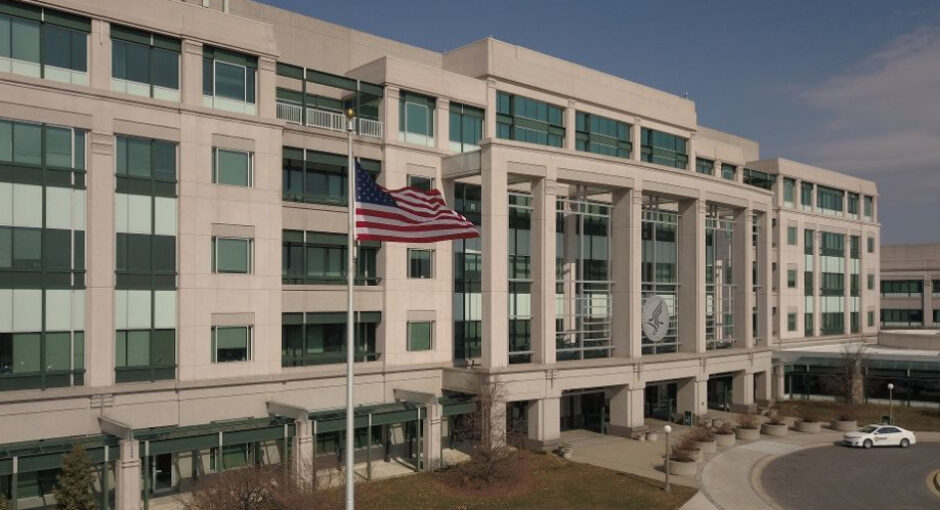The U.S. Centers for Medicare & Medicaid Services Tuesday announced the first 27 prescription drugs that will be subject to Medicare Part B inflation rebates, a list that includes AbbVie’s blockbuster arthritis drug Humira, which generated $5.6 billion in global sales last year. A number of Pfizer products, including blood thinner Fragmin and leukemia drug Nipent are also among the first drugs slated for rebates.
CMS’ Medicare Prescription Drug Inflation Rebate Program (MPDIRP) targets prescription drug products whose prices have risen faster than the rate of inflation.
CMS is requiring all 340B covered entities that submit Part B drug claims to use claims modifiers to identify all drug Part B products starting in 2024, in order to exclude 340B-purchased drugs from inflation rebate calculations.
Part B beneficiary coinsurance for the 27 drugs may be lower from April 1 through June 30, 2023, CMS said in a March 15 news release. Medicare enrollees who are prescribed a drug and biological on the list could save between $2 and $390 per average dose, depending on their individual coverage, the agency said.
“The Biden-Harris Administration believes people with Medicare shouldn’t be on the hook when drug companies inexplicably jack up the prices of their drugs,” said U.S. Health and Human Services Secretary Xavier Becerra. “By reducing coinsurance for some people with Part B coverage and discouraging drug companies from increasing prices faster than inflation, this policy may lower out-of-pocket costs for some people with Medicare and reduce Medicare program spending for costly drugs.”
The therapies covered by the new inflation rebates may change quarterly, CMS said. The 27 drugs include Pfizer drugs Atgam (for aplastic anemia) and two versions of its antibacterial Bicillin (infections including syphilis and strep throat). Kite Pharma’s drugs Tecartus (lymphoma and leukemia) and Yescarta (lymphoma) are on the list. So are Leadiant Biosciences’ Abelcet (fungal infections), Endo Pharmaceuticals’ Aveed (low testosterone), Bausch Health’s Minocin (bacterial infections and acne), Roche’s Mircera (kidney disease-related anemia), Janssen’s Rybrevant (non-small cell lung cancer), and Endo Pharmaceuticals’ Xiaflex (Peyronie’s disease).
CMS said it intends to invoice drug manufacturers for 2023 and 2024 Part B inflation rebates no later than fall 2025.
In a related development, CMS yesterday afternoon released a 91-page guidance document detailing the requirements and parameters—including requests for public comment—on key elements of the new Medicare Drug Price Negotiation Program. It says:
“A manufacturer with an agreement with the Secretary under the 340B program is not required to provide a 340B covered entity with access to the [Maximum Fair Price] of a selected drug with respect to an MFP-eligible individual who is eligible to be furnished, administered, or dispensed such selected drug at the covered entity if the 340B ceiling price is lower than the MFP for such selected drug.
A manufacturer with an agreement with the Secretary under the 340B program is required to provide a 340B covered entity with access to the MFP of a selected drug with respect to an MFP- eligible individual who is eligible to be furnished, administered, or dispensed such selected drug at such covered entity if the MFP is below the 340B ceiling price for such selected drug.
Should it subsequently be determined that the 340B ceiling price is lower than the MFP for the selected drug, the manufacturer would have to provide to the covered entity the difference between the MFP and the 340B ceiling price. CMS intends to work with the Health Resources and Services Administration, which administers the 340B Drug Pricing Program, to help to ensure that the MFP is made available to 340B covered entities where appropriate.”
The guidance is intended to provide manufacturers with more details on how the government plans to implement the drug pricing elements of the Inflation Reduction Act for both the Medicare Part B and D programs.


